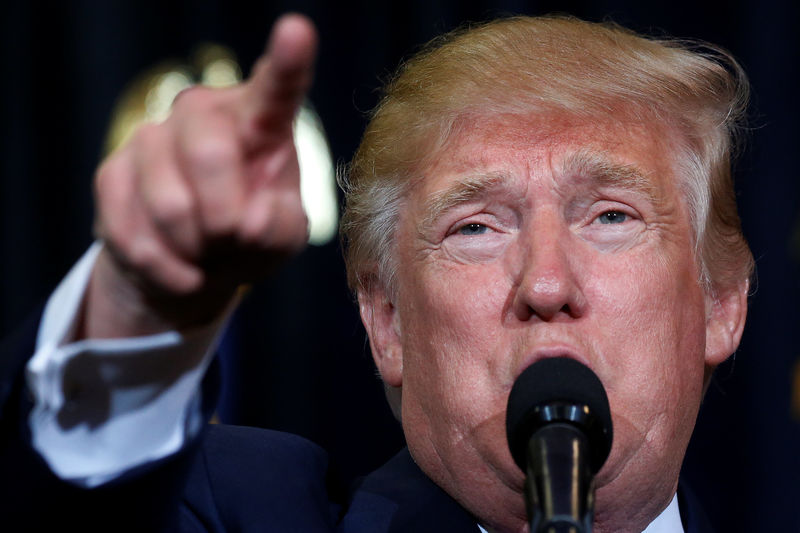(Bloomberg) -- In trying to portray Chevrolet as being dogged by Europe and China’s unfair trade practices, President Donald Trump demonstrated a need to brush up on the state of General Motors Co (NYSE:GM).’s all-American brand.
During his latest Make America Great Again Rally on Tuesday, Trump lamented to the crowd how few Chevys there are on the streets of Berlin. In giving an explanation for why this is the case -- Europe’s trade barriers -- he left out any mention that GM abandoned the European market almost entirely last year, and withdrew the Chevy brand years earlier.
Then came another gaffe on the price of the Chevy Camaro in China. Trump claimed the muscle cars cost as much as $119,000 there, citing “taxes and taxes and taxes.” In fact, the company sells the vehicle for 399,900 yuan -- about $58,000.
“It doesn’t make any sense,” said Maryann Keller, an independent auto analyst in Stamford, Connecticut, who’s authored several books about GM.
A spokesman for the biggest U.S. automaker declined to comment.
GM left Europe after decades of losses by selling the Opel and Vauxhall brands to French automaker PSA Group in a deal that closed a year ago. Bigger, less fuel-efficient American cars never sold well in the European market, according to Keller.
“What he’s saying is not validated by history,” she said.
Keller said some of China’s auto trade policies are unfair, including its limits on foreign ownership of car factories, and she supports Trump’s efforts to change them.
The president made the comments just before a fresh round of U.S. and China tariffs on $16 billion of each other’s goods take effect, which would deepen a trade war between the world’s two biggest economies. Trump is betting levies on Chinese imports will stoke investments in the U.S. rather than lower-cost China, supporting domestic demand and creating more American jobs.
But Keller said lower tariffs won’t help U.S. automakers in Europe, since that’s not the source of their competitive disadvantage in the region.
“Right now, U.S. automakers are getting rid of small cars, the only thing they could conceivably sell in Europe,” she said. “Their emphasis is all on seven-passenger SUVs and big pickups. These vehicles make a lot of money for them here in the U.S., but nobody is talking about putting them on a ship and selling them in Europe, because demand there would be infinitesimal.”
